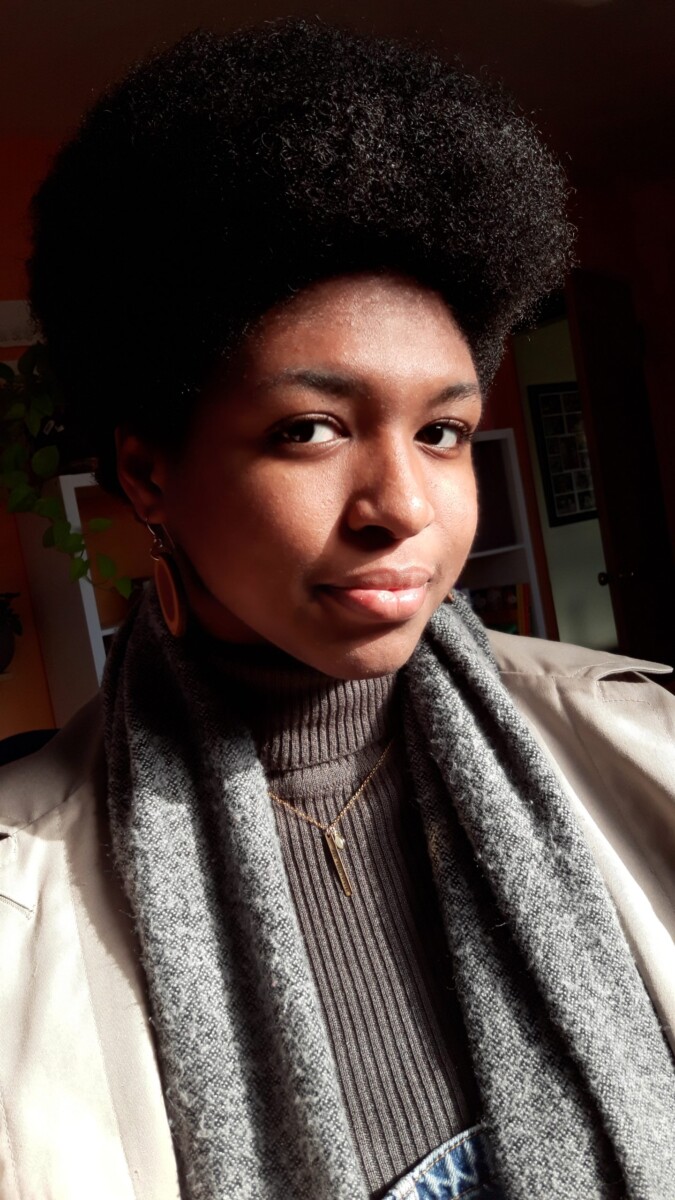Last year, I made an interactive design project called “Bildungsroman.” I was learning about bildungsroman as a literary genre of coming-of-age stories — stories about where you start out as one person and emerge a different (and hopefully better) human being.
The project was meant to be hung up somewhere. It never was. I was quarantined on the day I would have installed it. It’s been collecting dust in a corner of my room, but with an impending move from my childhood home, a portfolio to assemble, and a graduation looming in the near future, it’s fun to revisit a “coming of age” reflection.
At the time I created it, I was thinking “Oh I’ve already grown so much as a person.” But I’ve grown even more in the year since then. I don’t know why I expect my wisdom and maturity to plateau at some comfortable point in the future. Perhaps it won’t. Perhaps I’ll have to maintain it, guard it, nurture it? Now that I’m musing on it, I’ll have to get some other thoughts on this.
I started my Bildungsroman project with a prompt. If growing up is a disease, what are your symptoms? How do you know it’s happening? If you were Peter Pan chilling in Neverland, what event would get you evicted from Neverland, never return?
In my mind, symptoms could be quirks, new habits, desires, developing personality traits, or the sudden lack of any of those things. The study is meant to inspire and capture moments of self-awareness in the middle of a natural human process that everyone endures in their own way.
I tried to avoid including financially based markers, because I think it’s too easy to say “I drive. . .I own a house. . .I’m an adult.” At the time, I didn’t drive, and owning a house still seems like a financial hurdle.
I thought the way one manages resources (not just the resources that you have) might be more telling. It pushed me to be a little more creative, thinking outside of the box, whether that’s deeper or smaller.
My ultimate result, walking away from this, was thinking that a lot of maturity deals with how self-aware you are. Regardless of your physical or financial circumstances. I like thinking this project would have pushed people to be a little more self-aware to moments specific to their own lives.
In my project, I created a fake form that appeared to have been handed out to multiple people, and then filled out some symptoms and answers. Each form was put on a clipboard and looked like a collection of important medical documents. In fact, I also wanted it to resemble a scientific experiment, so it might not even be interpreted as a design piece until investigated closer.
My top three symptoms, that I enjoyed writing the most were:
- Boundaries
- Coffee
- Clarity
Even though I was writing about myself (sometimes pretending, sometimes for real) it was hard to write also with a slightly clinical tone, as if I was observing from outside myself. I discussed sleep, clarity, boundaries, lament, cultural lens, coffee, baggage, routine/structure, innocence (loss of), moral compass, nostalgia, and maternal feelings.
While revisiting projects in my current class for a portfolio, I’ve been considering revisiting this project – dusting it off and reviving it in a more interactive format. Even rereading it, I think it would be interesting to add a few forms each year and maintain a moving “scientific” diary of my personal growth. Maybe someday I’ll edit the project, recreate it, and put it up somewhere. Downtown! See if people interact with it, comment on it, brush by it disinterested.
Maybe the same symptoms will take on new meanings. Frankly, personal, and spiritual growth are the little plot lines of our lives. I think it’ll never get old to investigate them.





